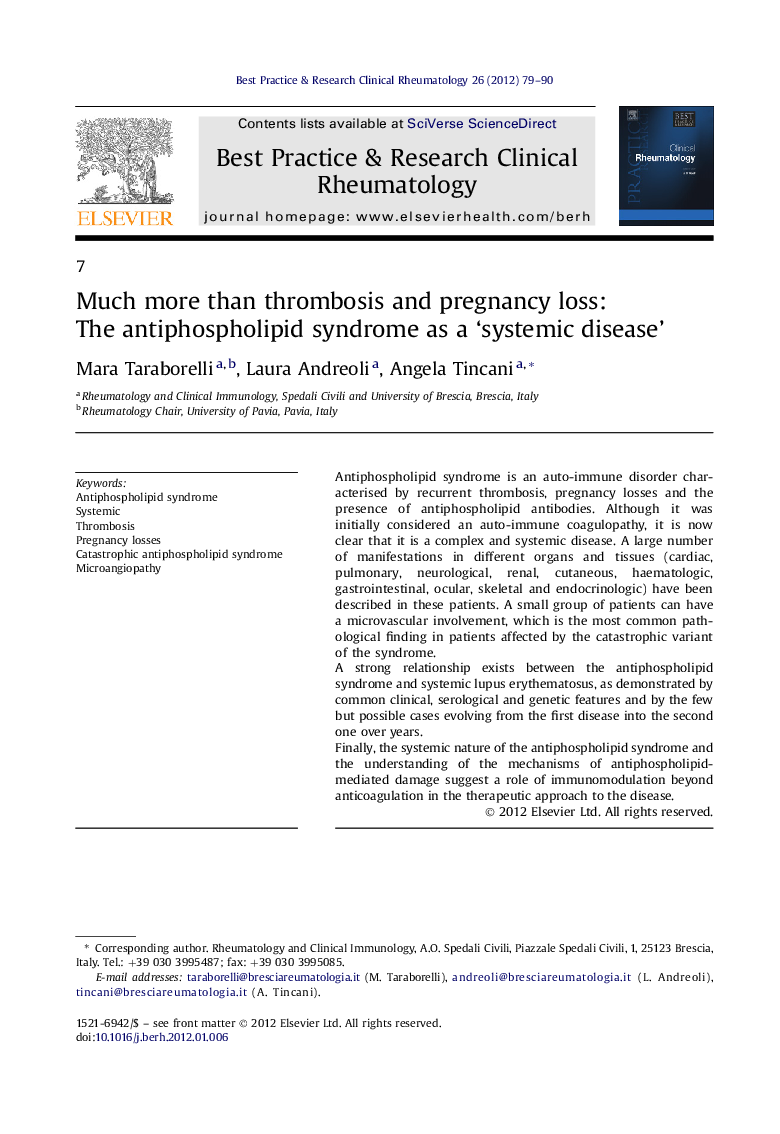| Article ID | Journal | Published Year | Pages | File Type |
|---|---|---|---|---|
| 3343165 | Best Practice & Research Clinical Rheumatology | 2012 | 12 Pages |
Antiphospholipid syndrome is an auto-immune disorder characterised by recurrent thrombosis, pregnancy losses and the presence of antiphospholipid antibodies. Although it was initially considered an auto-immune coagulopathy, it is now clear that it is a complex and systemic disease. A large number of manifestations in different organs and tissues (cardiac, pulmonary, neurological, renal, cutaneous, haematologic, gastrointestinal, ocular, skeletal and endocrinologic) have been described in these patients. A small group of patients can have a microvascular involvement, which is the most common pathological finding in patients affected by the catastrophic variant of the syndrome.A strong relationship exists between the antiphospholipid syndrome and systemic lupus erythematosus, as demonstrated by common clinical, serological and genetic features and by the few but possible cases evolving from the first disease into the second one over years.Finally, the systemic nature of the antiphospholipid syndrome and the understanding of the mechanisms of antiphospholipid-mediated damage suggest a role of immunomodulation beyond anticoagulation in the therapeutic approach to the disease.
